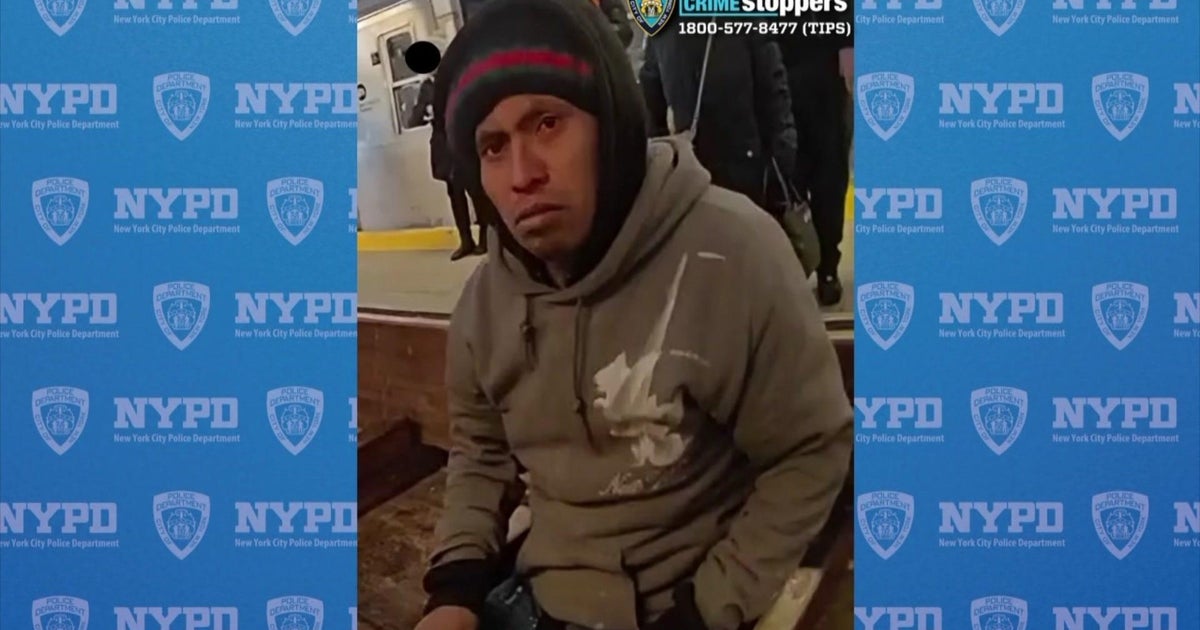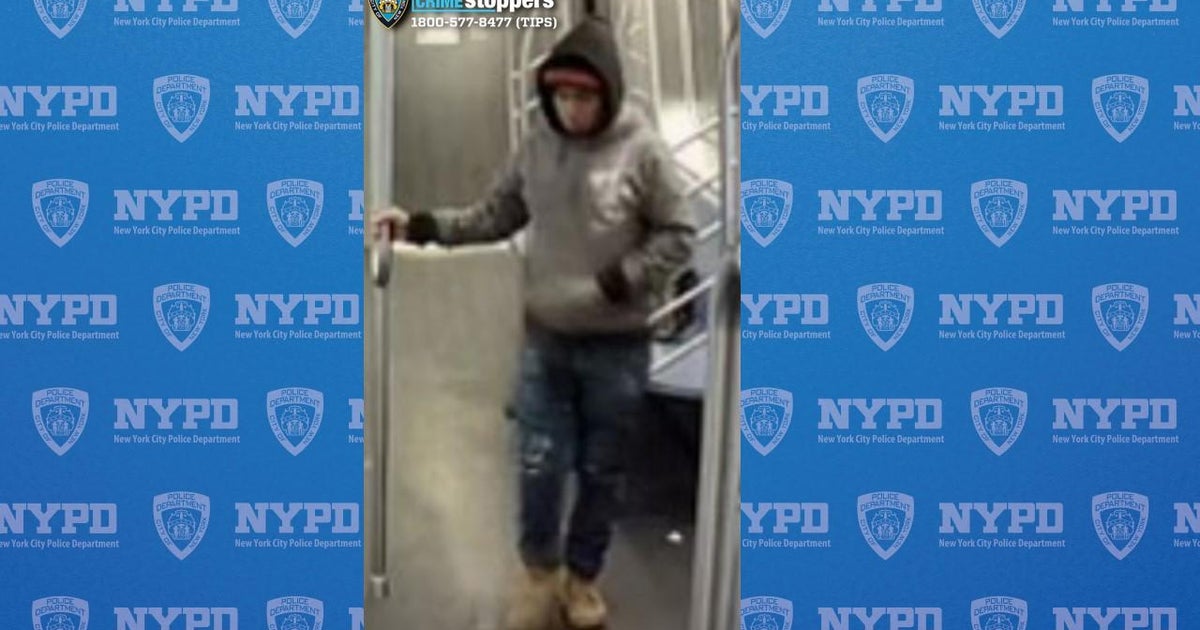NYC Stop-And-Frisk Appeal Could Be Over After Election
NEW YORK (CBSNewYork/AP) -- A federal appeals court block of a judge's ruling that found the NYPD's stop-and-frisk policy discriminated against minorities may be short-lived, depending on the outcome of next week's mayoral election.
The 2nd U.S. Circuit Court of Appeals said Thursday that the ruling by U.S. District Judge Shira Scheindlin would be on hold pending the outcome of an appeal by the city, a fight that could be dropped if Democrat Bill de Blasio, who is leading the polls by 39 points, has his way.
LINK: Read The Full Ruling (pdf)
De Blasio has said he would drop objections to the decision, which had called for a monitor to oversee major changes to the police tactic
"I've said repeatedly that what Judge Scheindlin did was correct," De Blasio said. "We had a situation that could not continue. The specific remedies she offered were fair and a first step toward the kind of reforms we needed."
NYC Stop-And-Frisk Appeal Could Be Over After Election
His Republican rival, Joe Lhota, said the city's next mayor must push forward with the appeal.
"We're going to move forward to have it completely overturned upon appeal," he said. "This is good for New Yorkers because it's going to continue the proactive policing that has driven crime down."
Lhota campaigned on Staten Island Friday with former Mayor Rudy Giuliani.
Giuliani took up the fight on stop-and-frisk, praising the appeals court decision.
"Made the point that the whole rationale for Mr. de Blasio's campaign is phony. This has been the whole rationale for his campaign," Giuliani said. "'The police department's terrible, the police department's awful, we're stopping all these people for no reason.' The court of appeals has just basically said to him 'that is a bunch of malarkey.'"
De Blasio dismissed Giuliani's comments, saying "I'm not looking to him for advice on police-community relations."
The City Council has already passed two new laws to rein in stop-and-frisk, including the appointment of inspector general.
Speaking Friday on WOR Radio, Mayor Michael Bloomberg said his administration "doesn't want an outsider'' making decisions on stop-and-frisk.
"For the next 60 days, we don't want an outsider coming in who doesn't know anything about crime fighting, putting the lives of our police officers and the lives of the public on the line," he said.
Police officers have "had their names dragged through the mud over the past year and I think they deserve a lot better than that,'' Bloomberg said. "We want them to understand that we support them and we are in conformity with the requirements of the law.''
Police Commissioner Ray Kelly said Friday that officers undergo a comprehensive training program when it comes to stop-and-frisk.
Kelly Speaks Out About Stop-And-Frisk Appeal
"We believe that we're doing everything we should be doing as far as stop, question and sometimes frisk," Kelly said.
The topic became an election flash point, resonating nationwide. Kelly was shouted down over the tactic by students during a speech at Brown University earlier in the week.
The three-judge panel also took the unusual step of removing Scheindlin from the case, because it said she ran afoul of the code of conduct for U.S. judges by misapplying a ruling that allowed her to take the case, and by giving media interviews during the trial.
Scheindlin said in a statement later Thursday she consented to the interviews under the condition she wouldn't comment on the ongoing case.
"And I did not,'' she said.
NYC Stop-And-Frisk Appeal Could Be Over After Election
Scheindlin said some reporters used quotes from written opinions that gave the appearance she had commented on the case but "a careful reading of each interview will reveal that no such comments were made.''
She defended her decision to direct the plaintiffs to bring the case to her, because it was related to the previous case she had been handling for years on a similar topic.
The appeals court said a new judge would be assigned at random to handle further decisions and said it would hear arguments in March on the formal appeal by the city. That judge may choose to make alterations to Scheindlin's rulings, but it would be unlikely.
Scheindlin decided in August that the city violated the civil rights of tens of thousands of blacks and Hispanics by disproportionately stopping, questioning and sometimes frisking them.
She noted in her ruling that she wasn't putting an end to the practice, which is constitutional, but was reforming the way the NYPD implemented its stops. She assigned a monitor to help the police department change its policy and training programs on the tactic.
The city then appealed her findings and her remedial orders.
"In short, the ruling of unconstitutional practices is no longer operative and that question will now receive a fresh and independent look both by the appeals court and then, if necessary, by a different trial court judge," Michael Cardozo, the city's corporation counsel, said in a statement.
The Center For Constitutional Rights, which brought the case against the city, said it was dismayed that the appeals court delayed "the long-overdue process to remedy" the NYPD's stop-and-frisk practices and was shocked that it "cast aspersions'' on the judge's professional conduct and reassigned the case.
The NAACP also condemned the appeals court's ruling.
"'Stop-and-frisk' policing is nothing less than the largest racial profiling program in the country, and Judge Scheindlin was right to rule it unconstitutional," NAACP President Benjamin Todd Jealous said.
PBA President Patrick Lynch applauded the decision.
"We salute the judges who made this courageous decision to remove an obviously biased judge from this case and granted a stay. New York City police officers want to do their jobs well and properly," Lynch said.
Stop-and-frisk has been around for decades, but recorded stops increased dramatically under Bloomberg's administration to an all-time high in 2011 of 684,330, mostly of black and Hispanic men.
Four minority men who said they were targeted because of their races filed a lawsuit in 2004, and it became a class-action case.
To make a stop, police must have reasonable suspicion that a crime is about to occur or has occurred, a standard lower than the probable cause needed to justify an arrest.
Only about 10 percent of the stops result in arrests or summonses, and weapons are found about 2 percent of the time.
Check Out These Other Stories From CBSNewYork.com:
(TM and © Copyright 2013 CBS Radio Inc. and its relevant subsidiaries. CBS RADIO and EYE Logo TM and Copyright 2013 CBS Broadcasting Inc. Used under license. All Rights Reserved. This material may not be published, broadcast, rewritten, or redistributed. The Associated Press contributed to this report.)



